This is a book that brings together between its covers various aspects of Abu al-Qasim’s life, environment, poetry, and the society in which he lived, as well as the studies conducted on him and the recognition of his works. Abu al-Qasim al-Shabi did not live long, but he left great works of prose and poetry. He is one of the poets who died before the age of thirty. Tarafa bin al-Abd was the first of them, then Abu Firas was the second. The last of them was Abu al-Qasim al-Shabi, who died at the age of twenty-five. He surpassed others when he excelled and soared in his romantic tendency, perhaps by virtue of a tradition or by virtue of his poetry, or by virtue of his era. In his creativity, he followed the nature of impetuous youth, so he listened to his heart and conscience, and expressed his environment and era in the most beautiful way. Despite the shortness of his life, his literature was full of experiences that were not available to others, and he stirred souls to his literature, whether these souls were with him in his philosophy or were critical of him. Through his literary perspective, he depicted his society, and he was like a mourner treating what time had spoiled in his life, after the qualities of the rebellious, revolutionary artist who knew the disease came together in his personality, so he provided the cure as much as he could in his short life and in the midst of a beautiful, captivating environment. His village “Tozeur” or the region of palm trees and palms, attracts attention and captivates hearts, and the capital of his country is green Tunis, on the sea coast, and the Tunisian country as a whole was the destination of travelers and writers and a proverb, Al-Qazwini described it in his book “Athar al-Bilad wa Akhbar al-Ibad”, and he described its air, the goodness of its water, the abundance of its goods, and the number of its fruits, as he described its air, the goodness of its water, the abundance of its goods, and the number of its fruits, as he described its beaches and the types of fish in it, including the “Baqouns” fish, which is used as a proverb when they say “If it weren’t for the Baqouns, you wouldn’t have differed with the people of Tunis…”, as he focused on the olive tree in it, then he listed the oases of Tunis and the deep goods in it and said: “And its water is abundant and irrigated, coming from fresh springs that farmers called “al-Makhmasin” work in because at that time they used to take a fifth of the production.” The history of Tunisia, like other Arab countries from the ocean to the Gulf, has been affected by what affected the large body of being under occupation, colonialism or mandate by the Western world. France occupied Tunisia in 1881, and it suffered under this occupation for a long time, and the “Beys” succeeded one another, increasing the injustice on the people who were suffering from the injustice and oppression of the occupier, until the country declared its independence in 1956, and the republic was declared, and the occupier was expelled and the last “Bey” was deposed after that control over Tunisia’s resources, economy, culture and the thinking of its people. In this painful atmosphere, amidst rampant corruption, and in the embrace of that picturesque nature and those great resources, Abu al-Qasim al-Shabi was born, where the features of the twilight began to appear and the new dawn began to shine, with the birth of revolutionary and liberating ideas to create a prosperous future for Tunisia, linking people to a modern life far from the stagnation, heresies and superstitions that prevailed during the period of occupation. The University of Ez-Zitouna had a great and significant impact on reviving thought, innovation and struggle to embody the spirit of civilization and shake off the dust of darkness and corruption. Intellectual and literary associations emerged, the most important of which was the “Association of Alumni of Sadikia,” an association that included young graduates of Ez-Zitouna. Al-Shabbi was one of its active members. He gave lectures and seminars and expressed his opinion frankly to be a strong and influential factor in awakening his people and society from their negligence. He also composed poetry to express the complaints and pain in his heart, and presented wisdom and described nature and united it with man to bring his philosophy to the mind and conscience of his society. Perhaps Youssef Al-Tarifi from this book clarifies aspects of the life of the poet Abu Al-Qasim Al-Shabi, his studies, culture, upbringing, and his travels with his father in the regions of Tunisia, then his illness until his death, and during that, he showed the influences on his life and personality, as he touched on his arts and purposes and the artistic image in his poetry and his philosophy in his life, then clarified his literary doctrine, his poetry and showed his artistic characteristics. He put in the book an explanation of some of his poems to be examples of his thought and philosophy. Then he showed his relationship with other peers and people of his time from poets and writers, and to increase the benefit, I proved some literary studies and critical fields that were written about him, and at the end of the book I proved what I was able to collect from his poems and arranged them according to the chronological order of their composition. He relied in this book on various and multiple references, but he did not touch on his prose, because the title of the book is specific to his life and poetry, although he clarified his opinion in his conversation about poetic imagination among the Arabs and the opinions that revolved around it.
save
د.ا1.42Abu al-Qasim al-Shabi His Life and Poetry
د.ا9.94د.ا11.36
A book that discusses the life of the poet Abu al-Qasim al-Shabi, the most important features of his poetry, and his contributions to Arabic literature.
You may also like…
-
Late Night
د.ا3.55A poetic text expressing alienation, loneliness, and self-reflection in the face of night and silence.
د.ا4.26 -
Eleven Planets
د.ا3.55It is an epic poetic meditation in which he evokes the Palestinian Nakba in a deeply symbolic style, mixing nostalgia, sadness, and hope for the restoration of land and identity.
د.ا4.26 -
The Butterfly Effect
د.ا8.52Deep poetic contemplations that trace the small details that leave hidden imprints on life and conscience.
د.ا9.94 -
I love you or I don’t love you
د.ا3.55A deep poetic meditation on love and confusion, where he mixes emotion and subjectivity in a style full of symbolism and beauty.
د.ا4.26

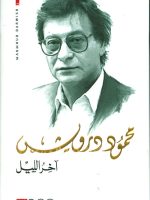
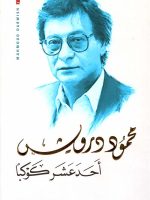
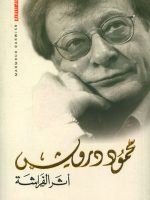
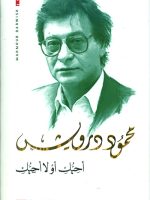
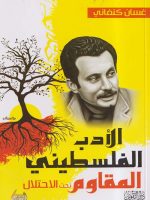
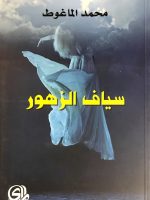
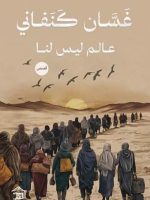
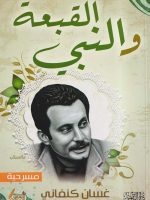
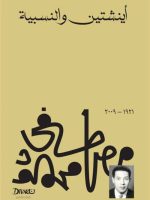
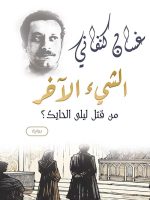
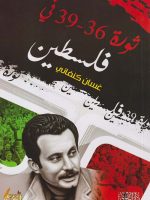
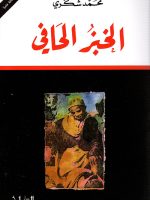
Be the first to review “Abu al-Qasim al-Shabi His Life and Poetry”